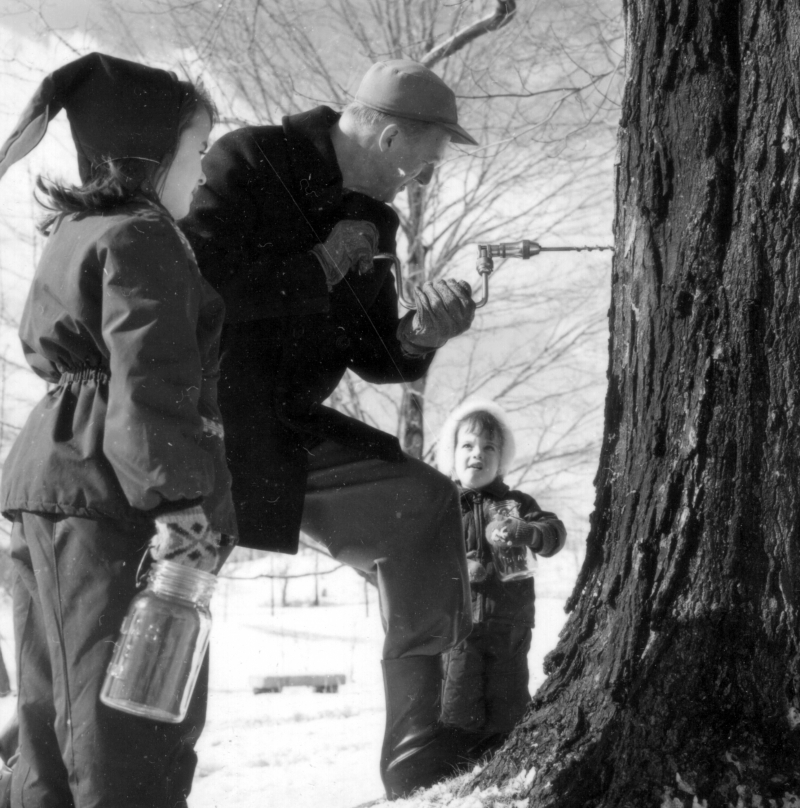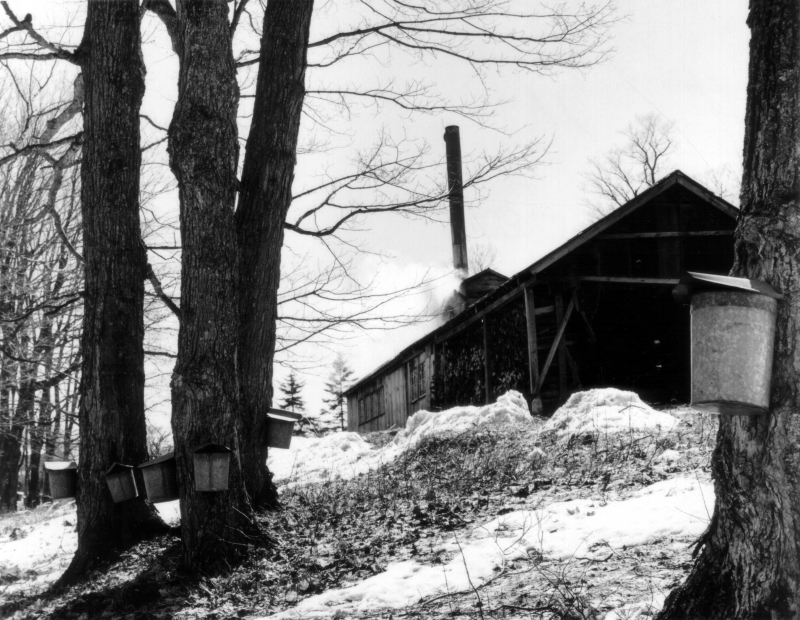Sugar Maple : Sugaring: Production
The actual process of sugaring is relatively straightforward. Sugar maples over 12 inches in diameter are selected and a single 7/16ʺ diameter by 2ʺ deep hole is drilled at a slight upward angle. Traditionally, another hole was drilled for every 6ʺ increase in diameter, up to a maximum of three or maybe four taps for the largest trees. Once the hole is drilled, a metal spout called a spile is hammered into the hole. Historically, a galvanized steel bucket was hung off this to collect the sap, but today, many large producers are transitioning to plastic tubing connected to a central collection tank. Regardless of the method used, the raw sap is then gathered and boiled in an evaporator to reduce the water content and concentrate the sugar and maple flavor. Once the sap reaches 219° F (7° F above the boiling point of pure water) and the sugar content hits 66.9%, it can officially be classified as maple syrup and be drawn off to be graded and packaged. It typically takes 40 gallons of sap to produce one gallon of syrup, although it can take much more or sometimes less. Depending on the amount processed, the boiling process can take many hours, and all night boiling marathons during heavy sap runs are not uncommon.
The vast majority of the world’s maple syrup, around 82% as of 2009, is produced in Canada, and most of that in Quebec. Of the 18% produced in the United States, 38%, or 2.404 million gallons, was from Vermont, 18% from New York and 16% from Maine, with seven other states producing the remainder. Vermont’s production equated to roughly $32.8 million worth of syrup in 2009, a substantial proportion of the state’s agricultural output. Clearly, maple syrup represents an important economic factor, but it is also culturally significant. Many families produce syrup for their own use that is not counted towards total production, and it is a point of pride for Vermonters to say that we produce real maple syrup. There is a great deal of attachment to maple and maple related products within the state, with festivals, cookbooks with scores of recipes, sugar on snow tastings, maple open house weekends and the crowning of a Maple King and Queen.


